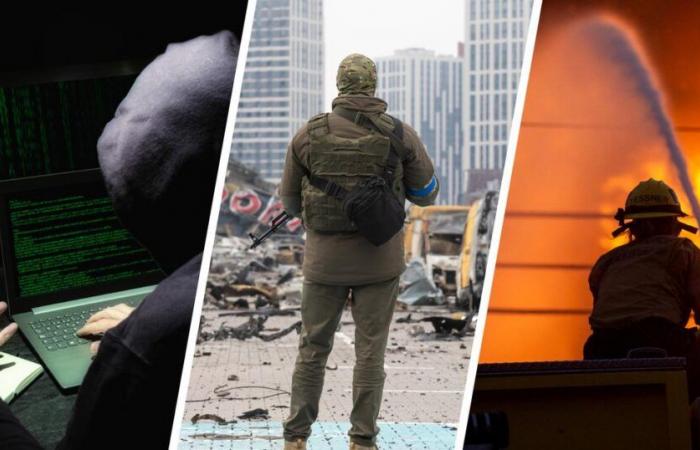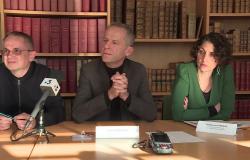Published this Wednesday, the annual report of the World Economic Forum in Davos highlights the major threats weighing on the planet in the short and medium term: armed conflicts, climate, societal and technological crises intertwine and shape a decade of high tension.
Ukraine, Gaza, Sudan, Somalia, Ethiopia… In a world where armed conflicts have been increasing for a decade, war is the main risk weighing on the economy, according to the annual report of the World Economic Forum published this Wednesday, ahead of the big rally of decision-makers in the Swiss city of Davos. Of 900 experts surveyed and 11,000 business leaders, a quarter of respondents perceive wars as the biggest threat for the coming year.
Since the invasion of Ukraine, geopolitical conflicts have taken on an unprecedented scale, with repercussions that extend far beyond the battlefields. Military tensions have triggered a rise in energy prices, disrupted supply chains and weakened economies already weakened by the Covid-19 pandemic, the report points out.
Global instability is making investors more cautious and states are increasing their defense budgets to the detriment of other key sectors such as health or education. For households, the consequences are felt directly at the pump, in supermarkets or on their electricity bill. A climate of uncertainty which also affects developing countries, where food and energy insecurity is worsening. Resources needed to fight climate crises or poverty are diverted to address crises, accentuating inequalities.
Interconnected threats
The “misinformation” and disinformation, identified for the second consecutive year as major risks, continue to “undermining social cohesion by eroding trust and exacerbating divisions”. Other dangers, such as extreme weather events, cyber espionage and polarization in societies, complement this gloomy short-term picture.
The long-term outlook paints an even more worrying picture. Environmental risks dominate concerns for the next decade, with extreme weather events, biodiversity collapse and natural resource shortages topping the rankings. Pollution, both an immediate and long-term risk, reflects a growing awareness of its impacts on health and ecosystems.
Technological challenges, such as abuses linked to artificial intelligence, add to this already long list of interconnected threats. As Mirek Dušek, director general of the World Economic Forum, explains: “In a world marked by deepening divisions and cascading risks, world leaders have a choice: foster collaboration and resilience, or face deepening instability. The stakes have never been higher.”
Also read
Global trade is slowing down and fragmenting
While 64% of experts predict a fragmented world order, marked by increased competition between powers, the call for strengthened international cooperation is launched. As Mark Elsner, head of the Forum's Global Risks Initiative, points out, “Whether it is conflict or climate change, we face interconnected crises that demand coordinated collective action”.






